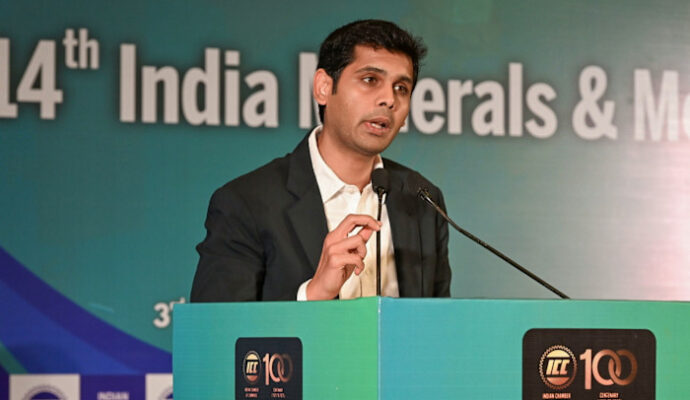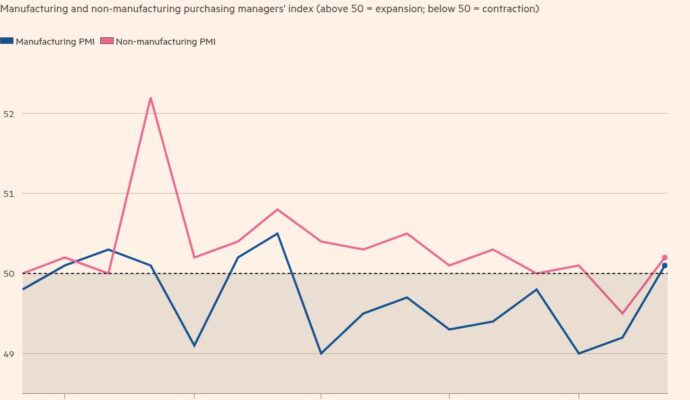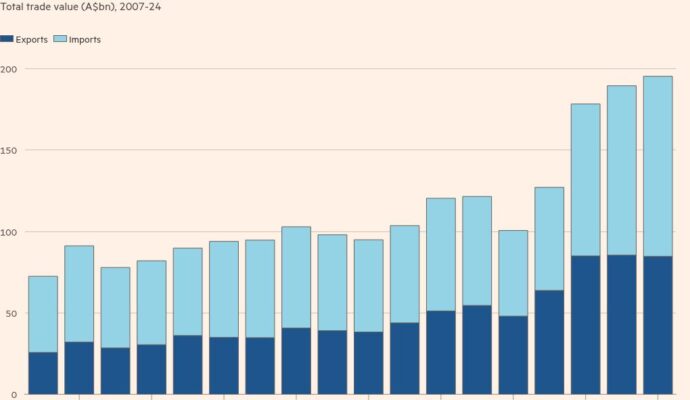Unlock the Editor’s Digest for free
Roula Khalaf, Editor of the FT, selects her favourite stories in this weekly newsletter.
A young antifeminist rightwinger has emerged as a fresh obstacle to South Korea’s embattled conservatives retaining power in next week’s presidential election.
Lee Jun-seok, 40, a Harvard graduate who once served as the youngest ever chair of the ruling People Power party, is polling in third place after standing as the candidate of his own breakaway conservative faction, the Reform party.
He has fiercely criticised his previous party for its reluctance to break with disgraced former PPP president Yoon Suk Yeol, who was removed from office by South Korea’s constitutional court last month and is on trial on criminal insurrection charges. Yoon’s doomed attempt to impose military rule in December last year led to his eventual removal from office, triggering the June 3 poll.
The election comes at a crucial time for Asia’s fourth-largest economy, which is wrestling with slowing growth amid global trade tensions. The new government will need to reach an agreement on tariffs with US President Donald Trump, who is also expected to push for a renegotiation of the two countries’ defence relationship and to attempt to engage in a fresh round of diplomacy with North Korean leader Kim Jong Un.
According to a Realmeter poll this week, Lee enjoys the support of 10.4 per cent of South Korean voters, compared with 37.6 per cent for 73-year-old Kim Moon-soo, the hardline rightwinger standing as the PPP’s candidate, and 46.6 per cent for 61-year-old leftwing frontrunner Lee Jae-myung.
The PPP’s Kim and some conservative commentators have called on the former PPP lawmaker to join forces with his old party — something he has described as “impossible” — and unite the right.
Lee Jun-seok is “playing a longer game”, said Jeongmin Kim, lead analyst at Seoul-based information service Korea Pro, seizing upon younger Koreans’ frustration with older politicians whose world views were shaped during the cold war when the east Asian country endured decades of authoritarian rule.
Lee, a fiscal conservative with a deregulation agenda some compare to Elon Musk’s, wants to help younger Koreans find employment and start their own businesses, describing his technocratic approach as “enabling Korea to have a fresh start and end the corrupt bipartisan system”.
Korea Pro’s Kim added: “His goal is less about winning this time around and more about his mission to ensure the destruction of South Korea’s rightwing old guard by highlighting the divisions between younger and older conservatives.”
She added that he had benefited from the disarray within the PPP that resulted from Yoon’s martial law declaration.
PPP leaders have hesitated to condemn the former president, reflecting the fact the party’s older base have largely retained their faith in Yoon even as the broader electorate has turned against him.
While issuing an apology for the martial law debacle earlier this month, Kim Moon-soo said of the constitutional court ruling that “unanimous decisions like that are common in communist states such as North Korea under Kim Jong Un or China under President Xi Jinping”.
The PPP’s credibility has also been undermined by a failed attempt last month to replace Kim as their presidential nominee with former acting president and Yoon’s prime minister Han Duck-soo, a career technocrat. Han was not a party member and has never held elected office.
The gambit, which triggered a backlash from party members and was eventually halted by a court decision, was branded an “unprecedented soap opera” by Lee Jun-seok.
Korea Pro’s Kim noted that Lee, who only qualified to stand for president when he turned 40 in March, has political baggage of his own.
Best known in South Korea as the face and voice of the “antifeminist” movement, an online-led backlash against increasing demands from women for greater gender equality, Lee left the PPP in 2023 after he was suspended by the party’s ethics committee over a historic allegation of sexual misconduct, which he strongly denied. Police later dropped the case, citing a lack of evidence.
Lee continues to advocate for the abolition of the country’s gender ministry, arguing it that it feeds “reverse discrimination” against men. Critics dispute his assertion that South Korea, which has one of the widest gender pay gaps in the OECD, has already achieved broad gender equality.
He was also widely condemned following a presidential debate on Tuesday evening, during which he referred in explicit terms to a sexually violent slur.
Kim said Lee’s calculation is that intergenerational tensions could trump gender divisions. “South Korea has many angry young men, but it has many angry young women too,” the Korea Pro analyst said.
“His bet is that they can be united by their hatred of the old men they see running the country,” she added. “But by reigniting controversy over gender issues as he did in the most recent debate, he risks alienating half of his potential coalition.”
Even if Lee were to merge his candidacy with that of PPP candidate Kim Moon-soo, they might not defeat the leftwing candidate, she noted.
“Lee’s voters are a coalition of conservatives revolted by the PPP, and centrists who can’t bring themselves to support Lee Jae-myung,” said Kim. “If they didn’t have Lee Jun-seok as an alternative, many of them simply wouldn’t vote at all.”


